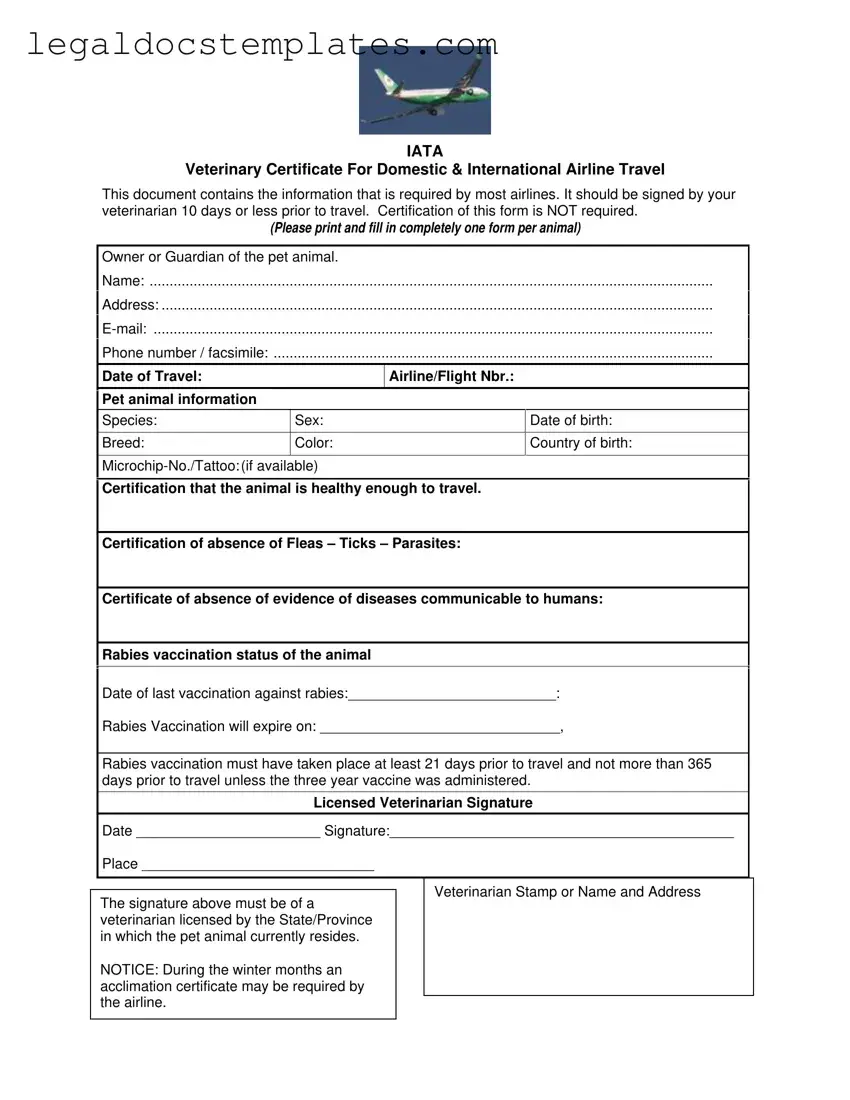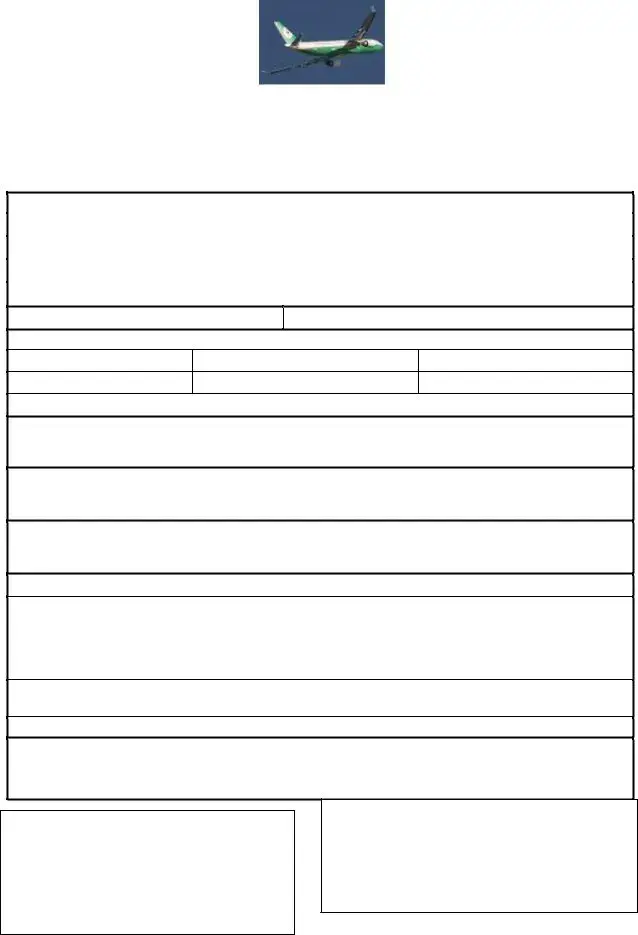The Health Certificate for Pet Travel closely mirrors the IATA Veterinary Certificate for Domestic & International Airline Travel. Both forms certify an animal’s health and vaccination status, essential for travel. However, the Health Certificate is often mandated for interstate or international travel, requiring a veterinarian's verification of the pet's health and that it poses no disease risks to other animals or people.
The Pet Passport, used within the European Union for pet travel, shares similarities with the IATA Veterinary Certificate. It includes records of vaccinations, particularly against rabies, and the pet's microchip number, ensuring the pet's health status and identification details are easily accessible for international travel within EU countries.
An Acclimation Certificate, which may be needed for pets traveling by air during colder months, as mentioned in the IATA certificate, also ensures the animal's well-being during transport. This certificate indicates a veterinarian's assessment that the animal can cope with temperatures lower than those generally recommended by airlines for animal travel.
The Certificate of Veterinary Inspection (CVI), required for most types of animal travel across state lines within the United States, bears resemblance to the IATA Veterinary Certificate. It confirms the animal's health status and that it is free from contagious diseases, following a thorough examination by a licensed veterinarian.
The Emotional Support Animal (ESA) Letter, though not used for certifying health or vaccination statuses, is pertinent for travel as it permits animals to fly with their owners in the cabin. Like the IATA Veterinary Certificate, it involves a certified professional's assertion regarding the animal's role in the owner's mental health and well-being.
The Quarantine Certificate, necessary for pets entering countries with strict animal import laws, parallels the IATA Veterinary Certificate in assuring the animal’s health and vaccination status. This document is crucial in preventing the spread of diseases across borders, but focuses more on the period of isolation post-arrival to observe for signs of illness.
Service Animal Documentation, required by some airlines and destinations, ensures a service animal is recognized and allowed to accompany its owner. Similar to the ESA letter and IATA Veterinary Certificate, it includes verification from a professional, but specifically relates to the animal’s training in assisting with a disability.
The Import Permit is often necessary for pets entering certain countries, ensuring compliance with local animal health and safety regulations. Like the IATA Veterinary Certificate, it may require detailed information about the pet’s health, vaccination records, and inspection prior to approval.
The Rabies Titer Test Results document, necessary for travel to rabies-free countries or areas with strict entry requirements, complements the IATA Veterinary Certificate. It provides laboratory evidence of adequate immunity against rabies, going beyond the simple vaccination record to satisfy specific country entry requirements.


